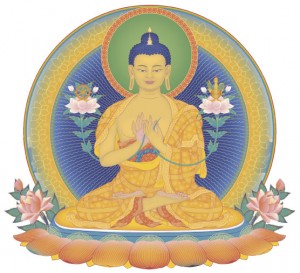Karma
Karma is a Sanskrit word referring to actions and their effects, especially in terms of producing habitual tendencies and their eventual effects on the environment of rebirth. The mind determines its own future: In Buddhist metaphysics there is no element of judgmentalism in what happens after death, it's all self-inflicted. Contrary to some belief systems, the ordinary mind has very little choice in its rebirth.and will be drawn to an environment determined by its imprints and habitual tendencies. If we recall the symbiotic minds hypothesis, we can see how this makes biological sense. An animal inhabiting an environmental niche of extreme aggression and violence will be at an advantage if it can attract and capture a mind well acqainted with anger. One which lives in an environment of severe scarcity would do well to attract a mind which is greedy and miserly. An animal which lives a sedentary boring sort of life, for example chewing the cud, will not benefit from a mind which has its thoughts on anything other than the mundane. Minds which are habitually angry, miserly or deliberately ignorant will be captured by inhabitants of the environments to which they are best adapted. The others may stand a chance of human rebirth. (In Buddhist beliefs, there is no guarantee that a human mind will be reborn into the human realm - there are plenty of other vacancies to be filled by suitable candidates) - Sean Robsville See also:
Samsara is a collective dream. Buddhahood is awakening. 'This world is the effect of the group or collective karma created by the beings who inhabit it.' RATIONAL
BUDDHISM |
